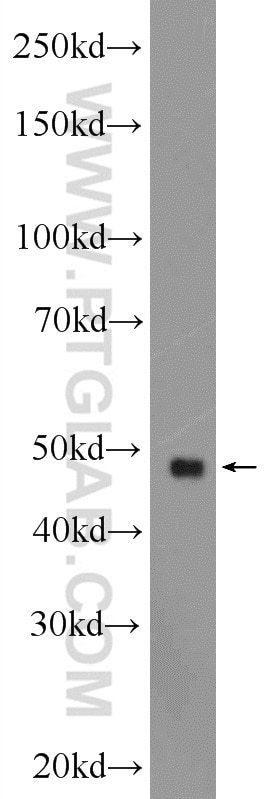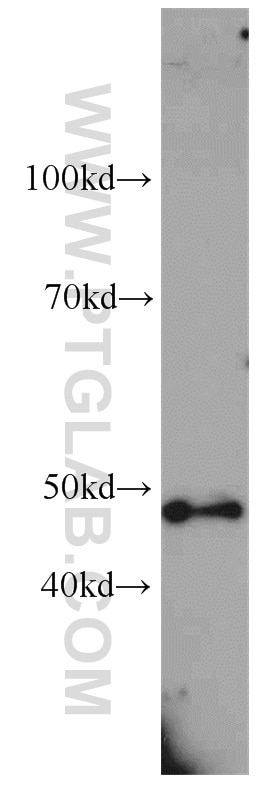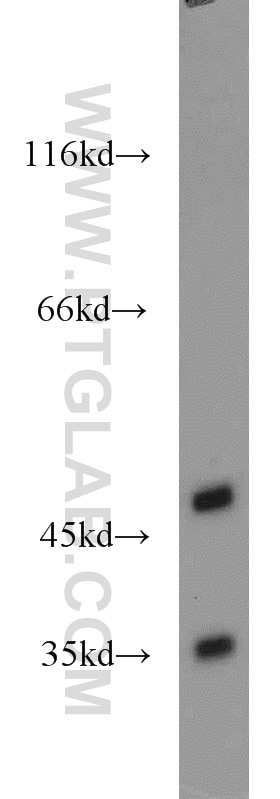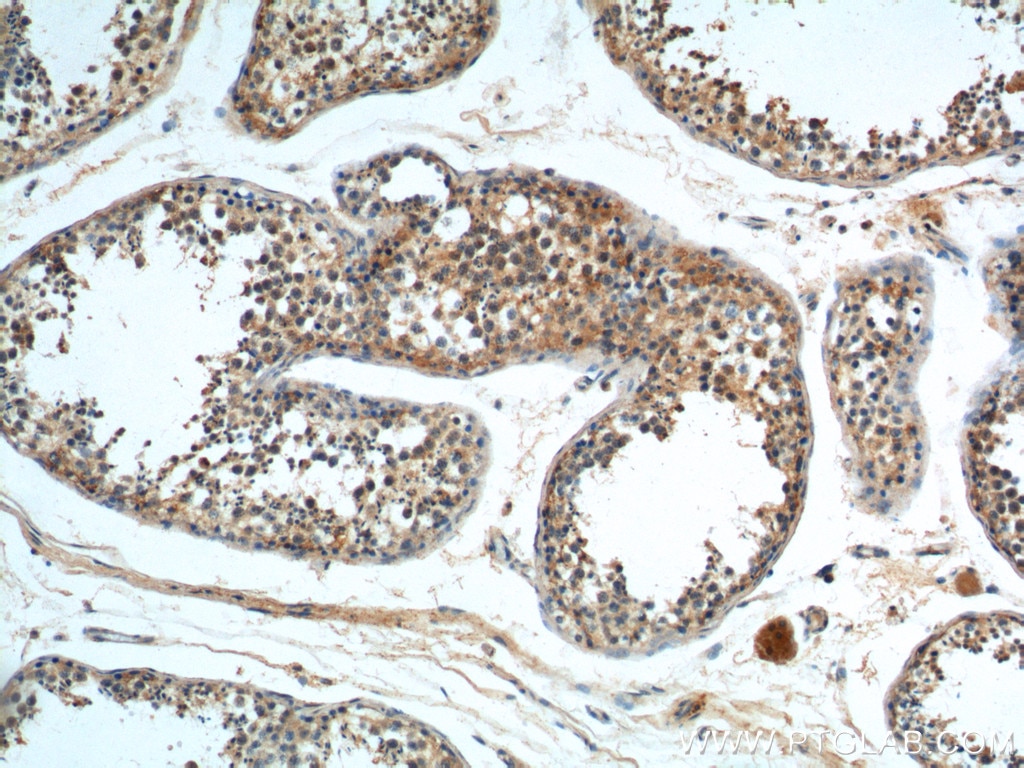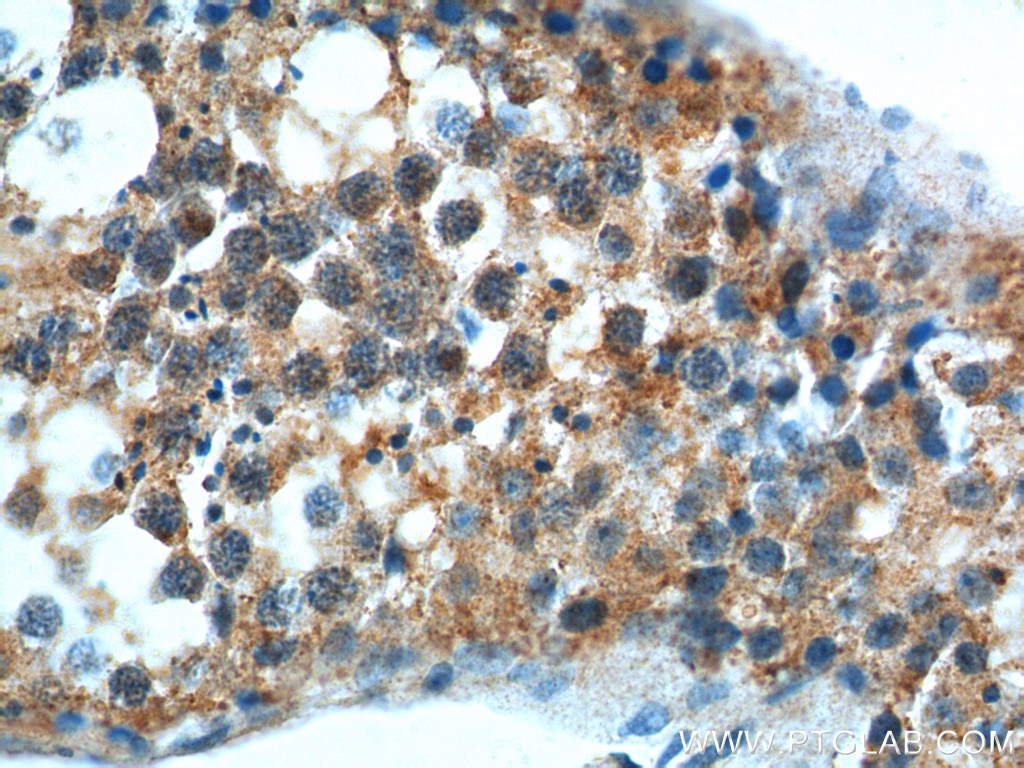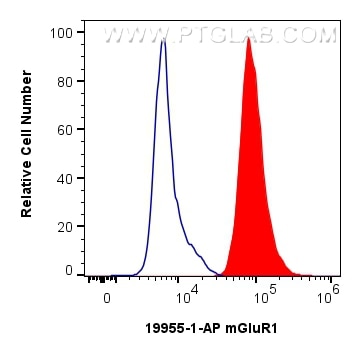Tested Applications
| Positive WB detected in | mouse heart tissue, mouse brain tissue, rat brain tissue |
| Positive IHC detected in | human testis tissue Note: suggested antigen retrieval with TE buffer pH 9.0; (*) Alternatively, antigen retrieval may be performed with citrate buffer pH 6.0 |
| Positive FC (Intra) detected in | SH-SY5Y cells |
Recommended dilution
| Application | Dilution |
|---|---|
| Western Blot (WB) | WB : 1:500-1:1000 |
| Immunohistochemistry (IHC) | IHC : 1:50-1:500 |
| Flow Cytometry (FC) (INTRA) | FC (INTRA) : 0.40 ug per 10^6 cells in a 100 µl suspension |
| It is recommended that this reagent should be titrated in each testing system to obtain optimal results. | |
| Sample-dependent, Check data in validation data gallery. | |
Product Information
19951-1-AP targets GPR22 in WB, IHC, ELISA applications and shows reactivity with human, mouse, rat samples.
| Tested Reactivity | human, mouse, rat |
| Host / Isotype | Rabbit / IgG |
| Class | Polyclonal |
| Type | Antibody |
| Immunogen |
Peptide Predict reactive species |
| Full Name | G protein-coupled receptor 22 |
| Calculated Molecular Weight | 49 kDa |
| Observed Molecular Weight | 50-55 kDa |
| GenBank Accession Number | NM_005295 |
| Gene Symbol | GPR22 |
| Gene ID (NCBI) | 2845 |
| RRID | AB_10644129 |
| Conjugate | Unconjugated |
| Form | Liquid |
| Purification Method | Antigen affinity purification |
| UNIPROT ID | Q99680 |
| Storage Buffer | PBS with 0.02% sodium azide and 50% glycerol, pH 7.3. |
| Storage Conditions | Store at -20°C. Stable for one year after shipment. Aliquoting is unnecessary for -20oC storage. 20ul sizes contain 0.1% BSA. |
Background Information
GPR22 Belongs to the G-protein coupled receptor 1 family. GPR22 is an Orphan receptor. The antibody recognize the C-term of GPR22.
Protocols
| Product Specific Protocols | |
|---|---|
| FC protocol for GPR22 antibody 19951-1-AP | Download protocol |
| IHC protocol for GPR22 antibody 19951-1-AP | Download protocol |
| WB protocol for GPR22 antibody 19951-1-AP | Download protocol |
| Standard Protocols | |
|---|---|
| Click here to view our Standard Protocols |

